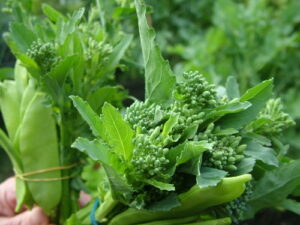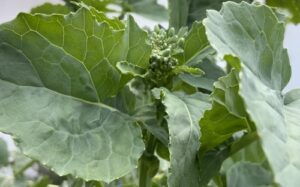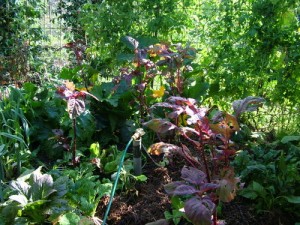We had frost this week. Two nights of it in a row. Not up to the height of my garden, which is 300 metres above sea level, but all along the creek flats. But the week before we had one day over 28°C and another couple in the high 20’s.
Today is clear and warm and sunny, and I’m contemplating whether it is late enough yet to divide up the ginger. And that, along with a comment from Jude last week about getting the timing right for planting has had me mulling on belonging to a place.
I’m at the south end of the range for ginger. It is always late to sprout here. Even if we have a warm start to spring it waits for the reliable heat and rain of summer. I can get good crops – it’s my glut crop for this week – but only by knowing it well.
Spring, though it is often scarily warm early is also our dry and windy season. Fire is more of a danger in spring here than in the height of summer, usually (except on the rare occasions when we get one of those freaky sets of summer weather with north westerly winds and no storm rain). Spring is the season of watching the water supply anxiously, of taking big gambles on how much to water the garden and the fruit trees, of keeping the fire tanker trailer full and the yellow overalls ready, of lying awake at night listening to the wind tearing branches off trees.
So I don’t blame the ginger for weighing up its options and deciding that the best bet is to keep it’s powder dry and wait for warm rain.
It’s not just living somewhere for a long time that allows you to build up this kind of nuanced knowing a place. Past time is one of the factors. Like a long marriage, it allows you to build up a huge body of intimate knowledge. Present time is also a factor. I notice it when I work indoors a lot I get really disconnected and lose that intimacy, and get clumsy with making good guesses. But a more important one is attention, which comes from a sense of belonging, which comes from a sense of a lot of future time.
We lose a lot of that in our western culture, that long, intimate, responsible relationship with a place. Aboriginal people knew it and mourn it like the loss of a loved one, or a whole family of loved ones. Rural people know it and can’t comprehend how anyone can think CSG fracking is anything but, well, fracking. I get really angry with people who disrespect it, who think they can make good judgements without it. It is a kind of relationship that we don’t even have good language to describe.
I think this is one of the huge risks in climate change, that urban people completely don’t get. Farmers gamble, constantly. They make educated, considered, intuitive guesses based on gut feeling, the tiny signals that intimacy and experience allow. Those guesses are sometimes right, sometimes wrong. Bad guessers go broke or resort to mining the land. Good ones get it right more often than wrong and succeed. Climate change is making all that experience and intimate knowledge of a place, built up over generations, unreliable. If people think energy costs are trouble for cost of living, they ain’t seen nothing yet. As farmers get the guesswork wrong more often, the cost of food, and food scarcity, will escalate at a rate I am scared to guess.
So I’m going to hold off dividing up the ginger. Today I’m planting out potatoes – Dutch Creams this time, and carrots, spring onions, and beetroot in the bed I’ve just moved the chooks off. I shall use my usual method for the spuds, planting them straight out into the bed. By the time they get up we will be past the danger of a late frost. I’ll plant a new round of carrots, spring onions, and beetroot in the shadehouse, using my usual method for the carrots and spring onions and my usual method for the beets, and selecting varieties with the best chance of surviving hot dry windy conditions and lengthening days urging them to bolt. I shall put the sprinkler on for a few hours in each bed over the next few days, and move a trickling hose around the fruit trees, betting on a nicer than usual spring – less hot and windy with enough rain to refill the dam and fend off the worst of the fire season. But my guesswork is not a lot of use to you.




The sense of belonging to the land is one I recognize deeply. I have been living in our humpy here for five years now and for ten years before that on a share farm orchard 6km up the road (and I grew up in this area) but I am still getting to know the land; the difference between the humpy and our last property is much more than a mere 6km. For example, we used to be able to grow peas all year round on the farm but at the humpy it is too hot by late spring to do that.
I also know what you mean about spending time indoors dulling the senses, for the last two years I have been studying online and spending lots of time in cyberspace (where the weather is dictated by opinion) and losing touch with my environment. Well this is the year I attempt to remedy that, wish me luck, I have to find a way to fit in bush living, study, work and mothering.
Linda I can’t tell you how much I loved this post! You have put into words so well that intangible emotion that we form with our little patch on the earth. I’m still learning about gardening so I’m still building that knowledge related to growing but I certainly feel that connection. I notice the changes and the differences year by year. I find when I walk in the bush I see more fungi and wild flowers etc. I wonder if there are more or if I just observe better these days. I wish everybody could connect with their place and know this feeling that you have described so well. To feel the differences in the air, the sounds, to notice the number and type of birds, whether the kangaroos are producing many joeys or holding off for another year. Yes, it deserves a word in the dictionary!
I liked your words…very much . We pay a lot of attention to the slight shifts in nature here ( on farm) and plan well ahead to try and capitalise on whats happening in paddocks .
I do the same in the garden .I know where I live that if I can’t dig a hole easily its time to stop planting …usually late october . I know t oget the garden ready now and plant all .the. seeds in the green house …nowish
I found your space online by accidentnand I really enjoy visiting
Lovely post, Linda. Thank you for sharing your thoughts.. xx
Maybe we haven’t lost our connection to the place we live, rather our influence on the places we don’t live have expanded. In the past all our actions had more local impact because the materials we consumed had to be sourced from our backyards. In contrast today we can consume a resource from someone elses yard and never feel the impact to ourselves. We might be now playing globally but possibly still only capable of thinking and behaving locally.
For me I lacked for many years a connection to the food I ate. Thanks to my garden I now feel a very strong one.
What beautiful words! I hope that in time I will understand my land even half as well as you do yours.
Pingback:climate change and sense of place | la 17 de noviembre
Pingback:Pickled Ginger